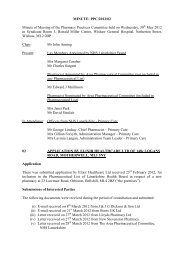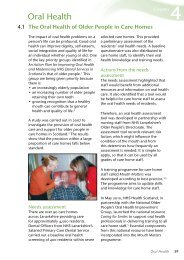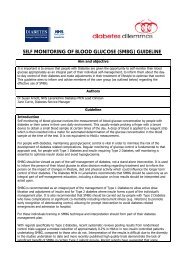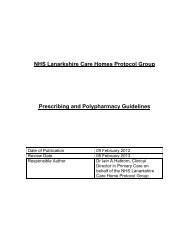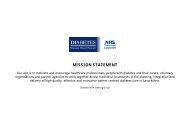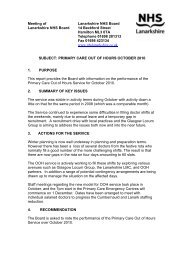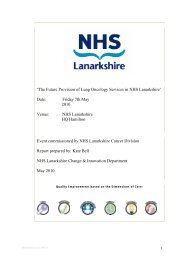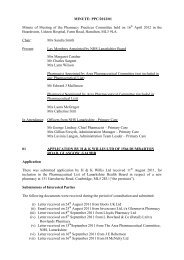Risk Management Annual Report - August 2009 ... - NHS Lanarkshire
Risk Management Annual Report - August 2009 ... - NHS Lanarkshire
Risk Management Annual Report - August 2009 ... - NHS Lanarkshire
Create successful ePaper yourself
Turn your PDF publications into a flip-book with our unique Google optimized e-Paper software.
<strong>Risk</strong> <strong>Management</strong><br />
<strong>Annual</strong> <strong>Report</strong><br />
2008 – 09<br />
Introduction<br />
The duty of the <strong>NHS</strong>L Board is to deliver healthcare both within the law, and without<br />
causing harm or loss to the organisation and all it represents. It does this by ensuring<br />
there is a robust Governance Framework, and operates a system of Internal Control and<br />
<strong>Risk</strong> <strong>Management</strong>.<br />
Good risk management has the potential to impact on performance improvement,<br />
leading to:<br />
◦ improvement in service delivery<br />
◦ more efficient and effective use of resources<br />
◦ improved safety of patients, staff and visitors<br />
◦ promotion of innovation within a risk management framework<br />
◦ reduction in management time spent ‘fire fighting’<br />
◦ assurance that information is accurate and that controls and systems are<br />
robust and defensible<br />
The key objective in risk management is to eliminate or control significant risk to an<br />
acceptable level, by creating a culture of risk management founded upon assessment<br />
and prevention rather than reaction and remedy. Staff are empowered to use their<br />
professional judgement in deciding which risks are significant.<br />
The complete elimination of risk will not always be a feasible goal for the Board, however<br />
in certain circumstances, calculated risk management will be required to achieve creative<br />
or innovative solutions that will help to improve the services to patients.<br />
In seeking to deliver these objectives, the Board <strong>Risk</strong> <strong>Management</strong> Steering Group will<br />
advise on/oversee and/or support the:<br />
◦ implementation of the <strong>Risk</strong> <strong>Management</strong> Strategy<br />
◦ management of risk within the Board<br />
◦ compliance with <strong>NHS</strong> QIS standards<br />
◦ risk register process<br />
◦ risks highlighted through the organisation<br />
◦ complaints and receive assurance on the implementation of corrective action<br />
◦ assessment of the impact of new legislation<br />
The last few years have seen substantial work both at strategic and at an operational<br />
level to identify risks and to put in place control measures to mitigate their impact. The<br />
contribution of staff at all levels across the Board has been a major factor in bringing<br />
us to where we are now, with well developed processes for the management of risk,<br />
including through comprehensive strategic and operational risk registers.<br />
Continued contributions will be essential as we respond to the many challenges <strong>NHS</strong>L<br />
will face in delivering on targets and aspiration in the years ahead.<br />
Introduction<br />
3




